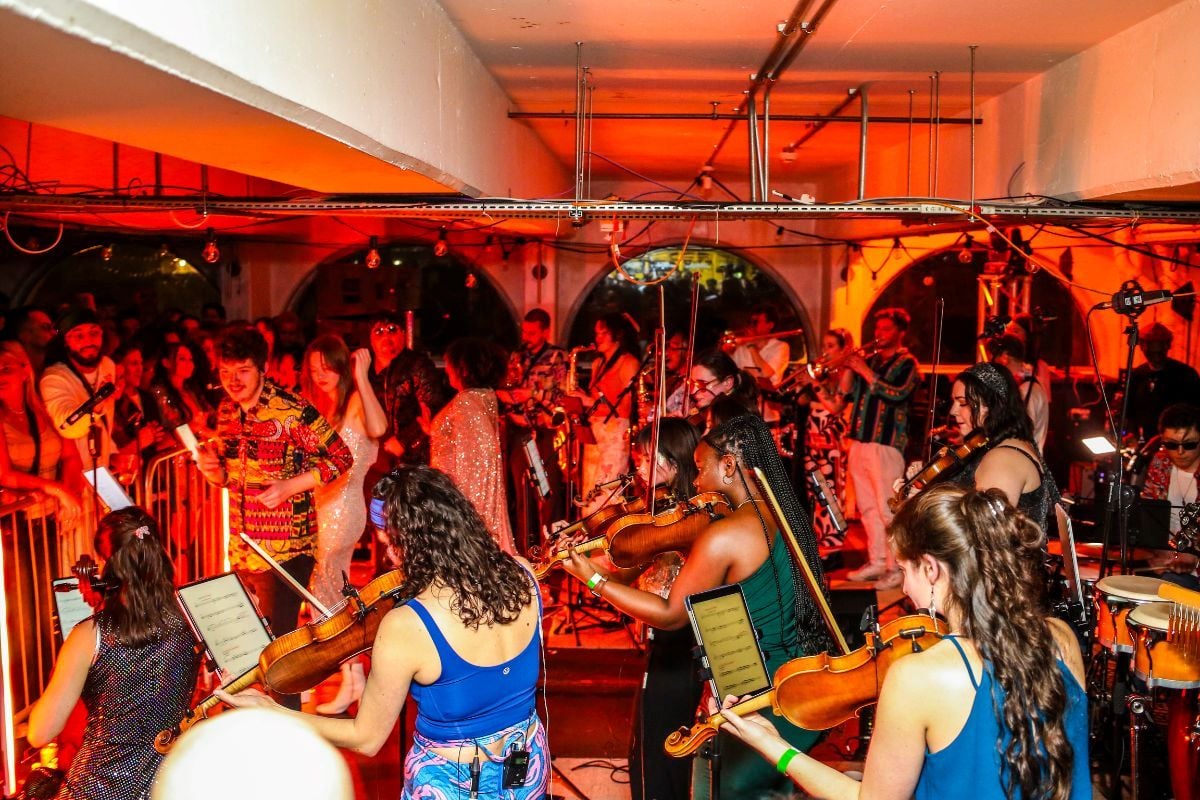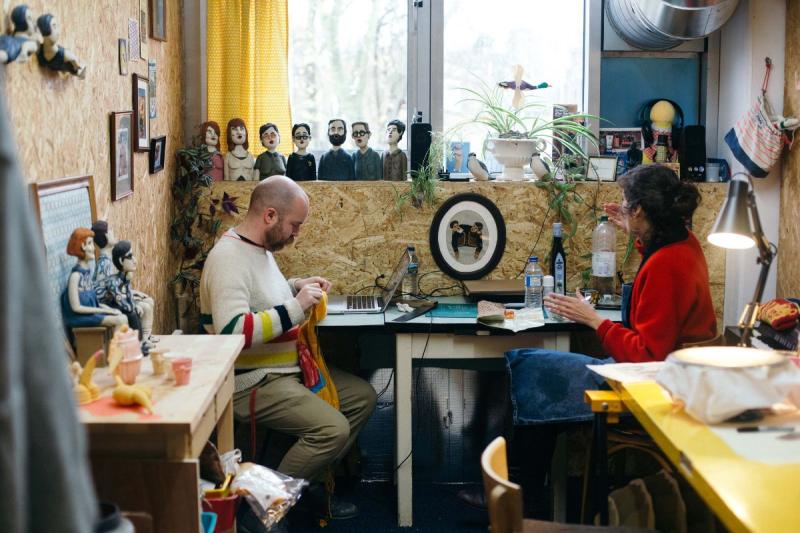
An asset of community value
A car park in Peckham has been transformed into a cultural hub, setting the benchmark for regeneration without gentrification, writes Joseph Winters.
As you walk down Rye Lane towards Peckham Levels you’ll encounter the ever-changing kaleidoscope of Afro-Caribbean, Asian and Middle Eastern businesses that have come to define South East London in the popular imagination.
You’ll smell meat and fish being cooked on market stalls, taste hairspray and nail varnish pumping out of beauty shops, you’ll hear fruit-and-veg sellers calling out prices and be dazzled by flashing signs from mobile phone shops squeezed into every spare square-inch of high street.
It’s a proudly mixed and hyperlocal economy, testimony to the fact that Peckham is still a village of locals making, buying, selling, feasting and organising together.
Car park to creative hub
If you’d walked down the street in 1982 you might have noticed a brand new multi-storey car park boasting 700 spaces over ten levels, its exposed concrete frame and red brick cladding embodying the brutal style of the day. It was built to serve the coming of a supersized Sainsbury’s but after ten years the supermarket moved on and the car park was left unused and empty.
Since 2017 it has been home to Peckham Levels, a creative hub of studio spaces for local artists and small businesses, including art studios, psychotherapists, social workers, film companies and music producers.
At the top there are two floors of public-facing cultural space. Included are a club night and gig venue hosting some of London’s most exciting emerging artists; an auditorium for talks, workshops and smaller performances; plus a food hall and bar where community groups come to meet and organise, students drink cheap local beers, and families enjoy free arts and crafts activities at the weekends.
A vision for Peckham
It is the result of a petition launched by resident-led group Peckham Vision to save the site from Southwark Council’s redevelopment plans (the proposals included a tower block with 83 new flats). The campaign to list the site as an Asset of Community Value was a staggering success and has had a long-lasting influence.
The fundraising merchandise has been exhibited at the Royal Academy of Arts, and leading activist Eileen Conn’s paper on community organising has been shared far and wide, setting a blueprint for similar projects. A steering group of locals, councillors and customers was established to work alongside a new private company, Peckham Levels Ltd, operating the site.
Although there have been the usual teething issues one might expect from so experimental a project, it has lasted seven years. And it has done so without displacing, disrespecting or disadvantaging lower-income residents, or communities of colour – whose cultural preferences and way of life should not be inferior and for whom Peckham shouldn’t be exclusionary.
It would seem Peckham Levels has set the benchmark for cultural regeneration without gentrification.
Continues…
 Peckham Levels: A creative hub of studio spaces for local artists and small businesses
Peckham Levels: A creative hub of studio spaces for local artists and small businesses
Inauspicious times
I took up the reins as Artistic Director at Peckham Levels in June 2023. It was perhaps an inauspicious time to come to a venue with a mission to champion multidisciplinary arts, enterprise and community action.
The optimism and financial security that characterised the cultural landscape I grew up in, and which led to the venue’s creation, now seem like a distant memory. Talking to other arts leaders, I don’t know a single cultural organisation in the country that feels financially secure.
A generation of freelance artists have given up, exhausted by the pandemic and the disastrous removal of their right to work freely in the EU. With the rising costs of living and working, every week we hear of another cultural venue closing, or radically reducing their scale of work.
And yet, Peckham Levels seems to be bucking the trend. When the going gets tough, it is in the hyperlocal and the cross-disciplinary where support and innovation can be found.
Unglamorous work
Our model is slightly unusual. Are we a public-facing arts venue? Yes. Are we a co-working and studio space business? Yes. Are we a community hub, offering free space for activists and local services? Yes. Are we a bar? A food hall? A marketplace? Yes, yes and yes.
That’s the point: these are the things Peckham has shown us it wants, and which we have found ways of housing in our six floors of former car park. Of course, sometimes things rub up against each other and the compromises feel a little fraught. And of course a car park gets cold, and sometimes wet, and we wonder what on earth we’re doing. But that is also part of the reality of a cultural regeneration project.
Every day we do the unglamorous work of negotiating how different needs can live alongside each other and, in that sense, we become a kind of unofficial town hall, a microcosm of the entire community. It’s a little messy, but that’s Peckham.
Innovative re-use of space
Despite the odds, our numbers are up month-on-month, year-on-year: more sales driving more activity, driving more engagement from a more varied audience. While recognising how difficult times are for so many, I think it is important to say that the arts and culture sector is not in an entirely hopeless situation, so long as we approach the idea of a cultural centre differently.
Projects like Peckham Levels show that through innovative re-use of space, and by drawing together all elements of our community, whether that’s profitable enterprise, hospitality, not-for-profit work, or multi-disciplinary arts, cultural and community venues can still flourish in this most hostile of contexts, like sparks in the rubble.
We relish our cultural mixed economy, the kaleidoscope of communities on our doorstep, and we are invigorated by welcoming people that support a forward-looking venue for arts, enterprise and community action in Peckham.
Over the past ten years, Peckham has changed utterly. New communities and new generations have found a voice; older communities have made room and fought back in equal measure. The role of arts venues in all this is simply to provide space for those already engaged in the debate to speak, and to lead those new to the conversation into the mix.
We do this because we believe that if there is an integrated home for arts, enterprise and community action, our neighbourhood will be an even better place to live, work and visit.
Joseph Winters is Artistic Director of Peckham Levels.
![]() peckhamlevels.org/ | josephpwinters.co.uk
peckhamlevels.org/ | josephpwinters.co.uk
![]() @peckhamlevels
@peckhamlevels
![]() joe-winters-5b141357/
joe-winters-5b141357/
Join the Discussion
You must be logged in to post a comment.